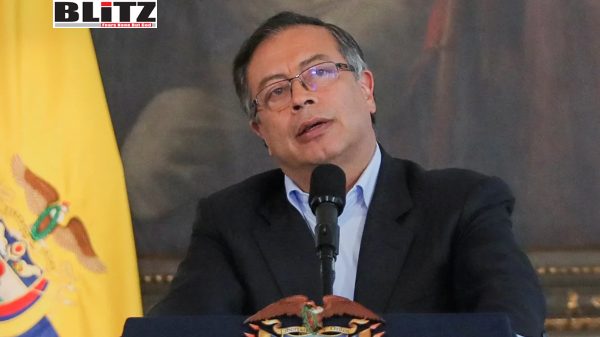Lawsuit seeks authority for Mike Pence on election result
- Update Time : Tuesday, December 29, 2020

Bob Unruh
A lawsuit has been filed seeking authority for Vice President Mike Pence, when Congress counts the Electoral College votes for president on January 6, to decide which slates of electors from contested states are valid.
The case was filed in U.S. District Court in Texas by a team lead by U.S. Rep. Louie Gohmert, R-Texas.
It seeks a declaratory judgment “finding that the elector dispute resolution provisions in Section 15 of the Electoral Count Act … are unconstitutional because these provisions violate the Electors Clause and the Twelfth Amendment of the U.S. Constitution.”
The issue has come up as President Trump’s challenges to the results of a number of swing states in the 2020 election have not been fully resolved. His campaign lawyers, and others acting in concert with but not under the campaign, have alleged, with evidence, that there was enough vote fraud to overturn the results, which were awarded by state officials to Joe Biden.
It is those procedures the case alleges are unconstitutional.
“They establish procedures for determining which of two or more competing slates of Presidential Electors for a given state are to be counted in the Electoral College, or how objections to a proffered slate are adjudicated, that violate the Twelfth Amendment,” the case indicates.
The case explains that the statute orders the vice president, in his capacity as president of the Senate and presiding officer over the January 6, 2021 joint session of Congress, to “count the electoral votes for a state that have been appointed in violation of the Electors Clause” of the Constitution and “limits or eliminates his exclusive authority and sole discretion under the Twelfth Amendment to determine which slates of electors for a state, or neither, may be counted.”
The statute also displaces the 12th Amendment’s dispute resolution procedure, the case charges.
In fact, the Constitution can be interpreted to affirm that the vice president during that count could reject electors from states where the results are in dispute. If neither candidate then gets the 270 votes to be elected, the choice of a president would be left to the House, with each state getting one vote.
The case charges the statute unconstitutionally gives that authority to name electors to the executives in the states, in violation of the Constitution’s Electors Clause. Those choices are given solely to state legislatures.
“This is not an abstract or hypothetical question, but a live ‘case or controversy’ under Article III that is ripe for a declaratory judgment arising from the events of December 14, 2020, where the State of Arizona (and several others) have appointed two competing slates of electors. Plaintiffs include the United States Representative for Texas’ First Congressional District and the entire slate of Republican Presidential Electors for the State of Arizona,” the case charges.
“The Arizona Electors have cast Arizona’s electoral votes for President Donald J. Trump on December 14, 2020, at the Arizona State Capitol with the permission and endorsement of the Arizona Legislature … at the time, place, and manner required under Arizona state law and the Electoral Count Act. At the same time, Arizona’s Governor and Secretary of State appointed a separate and competing slate of electors who cast Arizona’s electoral votes for former Vice-President Joseph R. Biden, despite the evidence of massive multi-state electoral fraud committed on Biden’s behalf that changed electoral results in Arizona and in other states such as Georgia, Michigan, Pennsylvania and Wisconsin that have also put forward competing slates of electors,” it states.
The vote numbers are high enough to change the outcome of the election, it explains.
The court is needed to make a judgment that would “terminate the controversy arising from the conflict between the 12th Amendment and the Electoral Count Act,” it states.
The Hill, like other legacy media, called it a “far-fetched bid.”
That report focused on objections to the case, including that from Edward Foley of Ohio State University, who said, “The idea that the vice president has sole authority to determine whether or not to count electoral votes submitted by a state, or which of competing submissions to count, is inconsistent with a proper understanding of the Constitution.”
The Washington Examiner called it a “last-ditch” effort.
The case explains that since competing sets of electors have cast votes in the election, Pence should have “sole discretion” to determine their legitimacy, taking into consideration the evidence of election fraud.
Already, Republicans in Congress have announced their intention to challenge the results from those contested states.
Content created by the WND News Center is available for re-publication without charge to any eligible news publisher that can provide a large audience.














